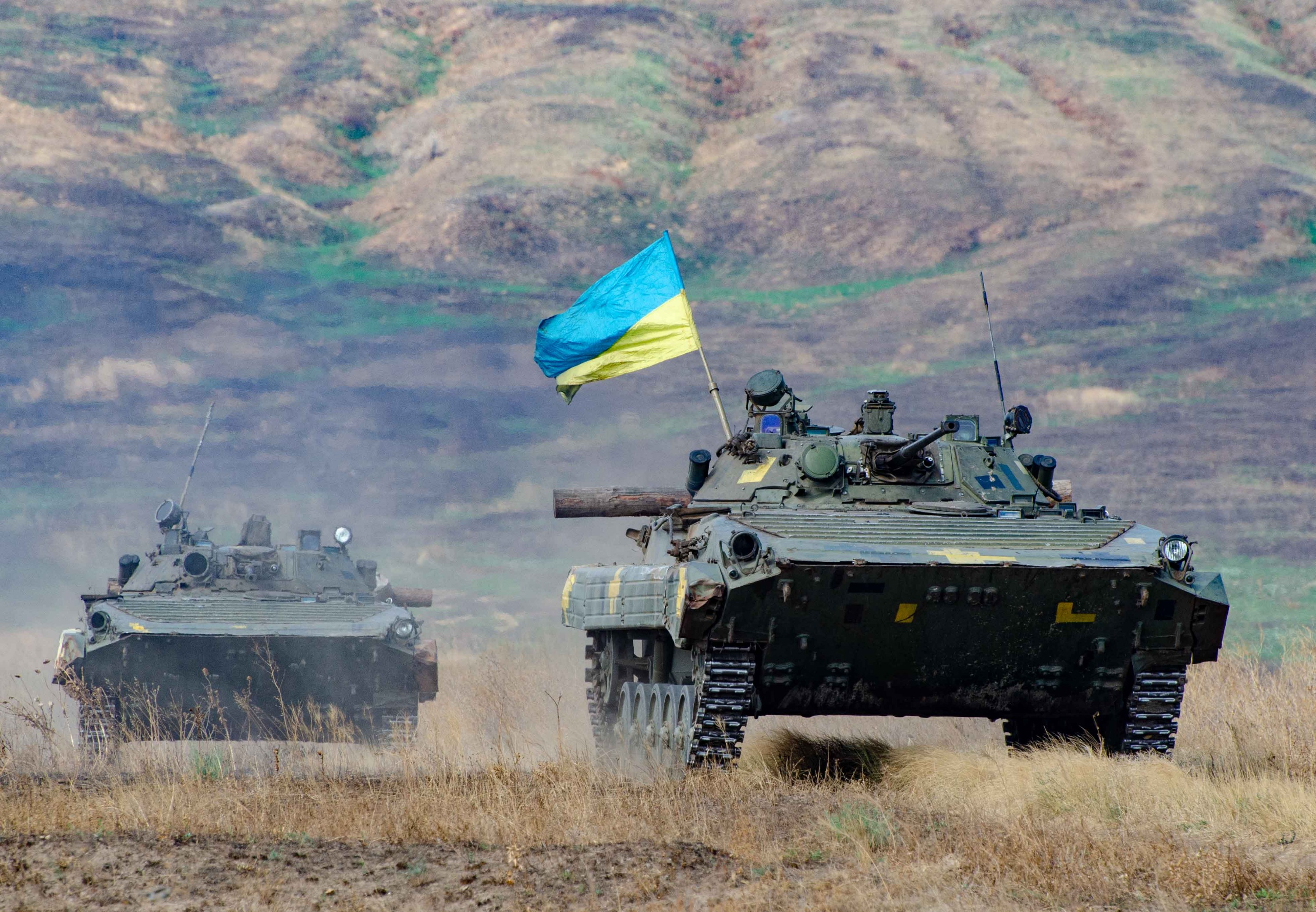Perhaps the greatest indictment that could be made against Ukraine’s pre-Maidan President Viktor Yanychovych who fled to Rostov, Russia under armed guard, was the evidence of how ill prepared the Ukrainian military was when Vladimir Putin invaded and then illegally occupied the sovereign lands of Ukraine, specifically parts of Luhansk and Donetsk oblasts and Crimea in 2014.
What became immediately and clearly evident was that the Ukrainian government and its military under his leadership was not prepared, nor able to adequately feed its soldiers nor equip them properly to defend the country’s borders. For example, many soldiers and volunteers had to buy their own flak jackets to protect themselves and ordinary citizens would buy groceries, bringing them to city halls across the country so that the collected foodstuffs could them be transported by leased trucks to the front to feed the troops.
Eight years later, as Russia is yet again, preparing to invade Ukraine, a sovereign, but still fledgling democratic state, what is the excuse of Ukraine’s leadership, along with its western partners, of not providing a military deterrent to Putin’s expansionist plans?
True, much has improved with the state of Ukraine’s military, however, there can be no excuse made as to the level of military hardware provided to Ukraine to defend itself. Because in this case, there were no surprises.
As of last Wednesday, a bipartisan group of senators from the U.S. having proposed a new law, the “Ukrainian Democracy Defense Lend-Lease Act” that would provide the president with the legal authority to provide all types of military equipment necessary to protect vulnerable Ukrainian citizens.
The mechanism, a “lend-lease” arrangement, was initiated between the U.S. and Great Britain during World War II as a result, as most would agree, of Britain’s military unpreparedness in light of the evidence of a growing and actual military threat posed by Nazi Germany. The effect of President’ Roosevelt’s decision saved Great Britain.
At that time, America was neutral, and did not act out of obligation to any other type of alliance or military obligation.
Then, as now, “Lend-Lease” gives the American president the ability to decide how much, and what type of aid can be given as it relates to the country’s national security interests. This proposed law clearly stipulates that Ukraine is a “national interest” of the U.S. By entering into, and accepting such aid within the context of such an agreement, Ukraine would be considered as a vital part of the U.S. national interest.
Furthermore, in entering into a lend-lease agreement with the U.S., Ukraine will have made a historic decision to formally, and some would say finally, “institutionalize” its relationship with the U.S. regarding its future national security.
It also means that it will have made a historic entrance into the national security sphere of its western partners without having formally entered into NATO.
Most importantly, the lend-lease arrangement will allow the United States, and ultimately, its’ and Ukraine’s Western partners, to aid Ukraine outside the formal structures of NATO. And for what it’s worth, it would deny the Russians the argument to accuse the U.S. that any actions of the U.S. or of western democracies to aid Ukraine, in the present circumstances and in the defense of its citizens, is a result of a defensive military alliance.
Providing military assistance to Ukraine at this time when it is threatened with an additional invasion from Russia, is not an act of NATO. It is the provision of military support and aid for a young democracy that seeks to defend itself against an aggressive neighbour who chooses to operate outside the jurisdiction of international law.
By accepting aid through a lend-lease agreement, Ukraine will have finally made its choice, once and for all, to turn its back on the Russian world. It will have decided that it will no longer submit to Russian’s notion that it is part of its “sphere of influence”. Perhaps most importantly, it will have expressed its sovereign decision-making initiative to join with its western partners. It will have determinedly cast its fate with the western world, its natural place, long denied by Russia.
There will be those that will argue that Ukraine had no choice but to accept the help of the United States and its Western partners. However, that is not the case. Ukraine has had a choice, having learned the harsh lessons of soviet communist and post-soviet Russian rule under Putin is no longer a viable choice or context within which it chooses to exist. The impending war with Russia will only further reveal the truth of this historical inevitability.
For many years, most of Ukraine’s progressive leadership, but most importantly, public opinion, has assuredly gravitated towards the West.
In a post-soviet world and with the fall of the Berlin Wall, and a time when Russia is attempting to assert its imperial dominance, Ukraine provides a historic example, illustrating that it is possible to reject Russian dominance and influence in its attempt to form its society along democratic principles. Ukraine’s people are ready to pay the price for such freedom. Such a people, and such a nation, is worthy of military support and aid.
Ukraine has rejected Russia and its world. In preparing for war, it is affirming its national statehood. Ukraine is preparing for war, not out of choice, but in need to fight against a lawless Russian aggressor who is clearly threatening its existential existence.
The world must both know, and acknowledge, that Ukraine is only going to war to affirm its national interest as a sovereign and independent state. It is a statement of its national will. Unfortunately, the time for soothing words of diplomatic support are over. As all wars do, they reveal certain truths about one’s friends and the depth of their support when the weaker are threatened by a strong aggressor. Ukraine is worthy of military support and aid by its Western friends.













